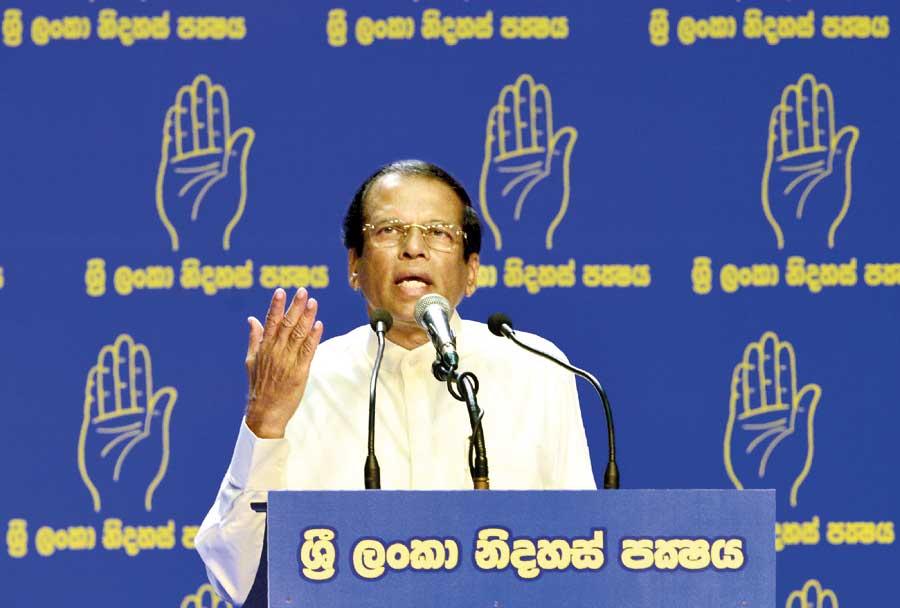01 Sep 2023 - {{hitsCtrl.values.hits}}
Future trajectory of SLFP in the backdrop of its contribution for shaping Sri Lankan and South Asian regional politics

The SLFP has also played a vital role in advocating for labour rights and social justice
The Sri Lanka Freedom Party (SLFP) has played a significant role in shaping the political landscape of not only Sri Lanka, but also the broader South Asian region. Founded in 1951 by S.W.R.D. Bandaranaike, the party has left a lasting impact on local and regional politics through its ideologies, policies, and contributions. This Article aims to provide a retrospective view of the contributions made by the SLFP to local and regional politics in South Asia and speculate about its future trajectory.
S.W.R.D. Bandaranaike, the party has left a lasting impact on local and regional politics through its ideologies, policies, and contributions. This Article aims to provide a retrospective view of the contributions made by the SLFP to local and regional politics in South Asia and speculate about its future trajectory.
Historical Context and Local Contributions
Following its independence from British colonial rule in 1948, Sri Lanka (formerly known as Ceylon) underwent a series of political, economic, and social changes. In the early years after independence, the country’s political landscape was shaped by its capitalist elite, largely composed of members of the upper affluent class of all ethnic groups who held significant economic power and influence. The capitalist elite played the central role in shaping the policies of governance and benefited from the economic opportunities they provided. This led to significant challenges, including issues related to income inequality, uneven development, and concerns about land ownership and distribution.
The SLFP emerged in response to the prevailing socio-economic and political disparities in post-independence Sri Lanka. It advocated for a more equitable distribution of resources and opportunities, promoting the welfare of the common people. The party’s introduction of the Land Reformation Act and nationalization of many private market monopolies e.g., Oil, Gas and Transportation marked a significant shift in Sri Lankan politics, shaping the country’s political orientation to address common man issues.
The SLFP has also played a vital role in advocating for labour rights and social justice. Its policies aimed at reducing the economic inequalities that were deeply rooted in the colonial past. By championing these causes, the party created a framework for social change that continues to influence Sri Lankan politics to this day.
Regional Influence:
The SLFP’s influence extended beyond Sri Lanka’s borders and had an impact on regional politics in South Asia. Its emphasis on non-alignment during the Cold War era aligned with the aspirations of other South Asian countries striving for autonomy and neutrality amidst the global power struggle. This made the SLFP an important player in regional forums and negotiations.
This was highlighted, during the Sino-Indian border conflict of the 1962, both India and China did seek mediation through the Non-Aligned Movement, and Sirimavo Bandaranaike, as the Prime Minister of Ceylon (now Sri Lanka) and a prominent figure in the Non-Aligned Movement, played a role in trying to mediate the conflict. It aimed to promote peaceful coexistence and diplomatic solutions to global conflicts.
Additionally, the party’s efforts to address ethnic and religious tensions within Sri Lanka contributed to discussions about communal harmony in a region characterized by diverse identities. While the party’s approach to these issues has been subject to criticism at times, its engagement nonetheless sparked conversations about managing diversity that resonated beyond the country’s borders.
Future Trajectory
Looking ahead, the future trajectory of the SLFP remains uncertain due to various factors. The evolving political dynamics in Sri Lanka, changing voter preferences, expansion of younger voter base and the emergence of new political forces could shape the party’s direction.
The party must adapt to modern challenges, including economic globalization, technological advancements, and environmental concerns. To remain relevant, the SLFP might need to reevaluate to rejuvenate its policies and ideologies to address these contemporary issues effectively.
Furthermore, the SLFP’s ability to connect with younger generations with a leadership more appealing to modern requirements of them will be crucial for its survival. Adapting its communication strategies to resonate with youth concerns and aspirations could determine its long-term success.
In terms of regional politics, the SLFP’s influence might continue to be felt if it engages constructively in regional forums, fostering cooperation and understanding among South Asian nations. Given the complex geopolitical landscape, the party’s emphasis on “friendship for all and enmity for none” policy and neutral diplomacy could find resonance in regional discussions.
In conclusion, the SLFP has left an indelible mark on local and regional politics in South Asia. Its historical contributions to social justice, nationalism, and neutral diplomacy have shaped the course of Sri Lankan and regional politics. As it navigates the challenges of the modern era, the party’s future trajectory will depend on its ability to adapt, connect with younger generations, and address contemporary issues effectively.
27 Dec 2024 4 hours ago
27 Dec 2024 4 hours ago
27 Dec 2024 5 hours ago
27 Dec 2024 5 hours ago
27 Dec 2024 6 hours ago